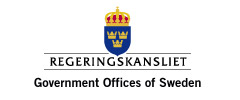In 2016, WECF began a campaign to raise 4,000 in 30 days to install biogas toilet systems for deprived families in Uganda
Not only did WECF reach their goal of 15 toilets, but were able to raise more than 4,600 to install 17 toilets
24.02.2017 |

A biogastoilet build by ARUWE and residents of the Mulagi district
In 2016, WECF began a campaign to raise 4,000 in 30 days to install biogas toilet systems for deprived families in Uganda.
Not only did WECF reach their goal of 15 toilets, but were able to raise more than 4,600 to install 17 toilets. The toilets benefited the most vulnerable in Mulagi Sub-County.
The toilets helped combat the serious health risks that resulted from inhumane sanitary conditions. The biogas toilets convert feces into gas that can be used as a sustainable energy source for cooking, or the processed feces used as a fertilizer in agricultural practices.
Why is Hygienic Sanitation Important?
1.Health: Without hygienic sanitation, bacteria can easily spread and cause diseases like Diarrhea that kills 530.000 children every year.
1.Contamination: Open defecation contaminates the groundwater. About 1.8 billion people globally use a source of drinking-water that is contaminated with feces.
2.Dignity: Let's face it: sometimes we love to spend time in the restroom, for reading a book or getting stuck on the smartphone. No one wishes someone else to be forced to defecate openly or in a dirty latrine.
History
Uganda, a sub-Saharan country in East Africa, has a population of about 35 million people, and 81% of that population does not have access to proper sanitation. Many citizens in the rural communities of Uganda has much lower rates. The latrines that existed prior the biogas toilets lack any hygienic standards, was used by more than one household, did not flush the feces and often times contaminated the area with bacterias, causing unsafe and dangerous conditions.
Outcome
Partnered with Action for Rural Womens Empowerment (ARUWE), WECF benefited the most vulnerable households, including those who are infected and affected by AIDS/HIV, grandmothers caring for orphans, widows or single-mothers. Biogas toilets create sustainable change and all beneficiary families were involved in the construction of their toilet systems as well.

Related News
Promotion of Healthy and Economical Agriculture and Livestock Farming
How to improve with simple means agricultural cultivation methods and local livestock farming and make them more profitable
08.08.2018
Towards the Implementation of the Sustainable Development Goals (SDGs) in Uganda
A report from the NGO Workshop on Green Technologies and Networking
21.11.2017
In 2016, WECF began a campaign to raise 4,000 in 30 days to install biogas toilet systems for deprived families in Uganda
Not only did WECF reach their goal of 15 toilets, but were able to raise more than 4,600 to install 17 toilets
24.02.2017
November 19, World Toilet Day
New ecosan toilet relief to girls attending Busi Parents School in Uganda
18.11.2016
Implementing SDG 5, 6 and 7 in Rural Uganda
Examples for gender-sensitive and sustainable WASH and energy systems and its implementation
12.07.2016







































